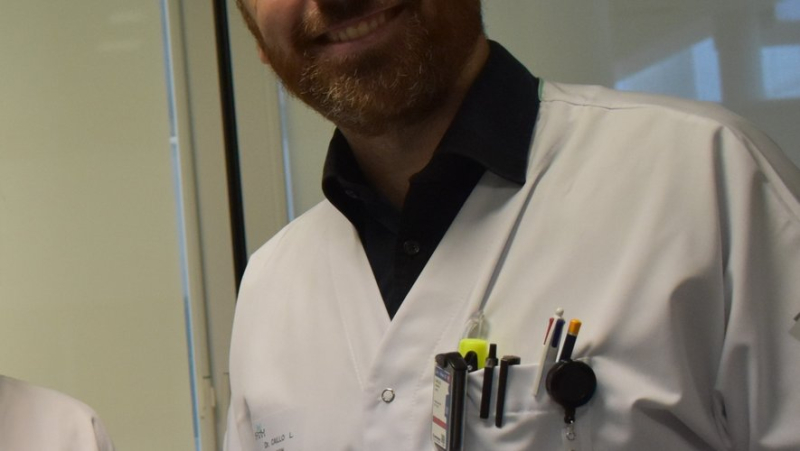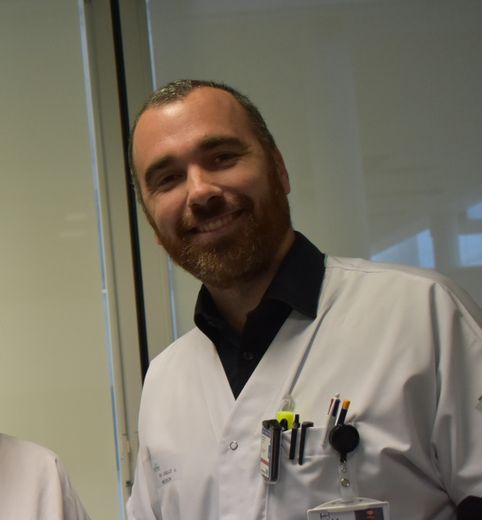A day of awareness of chronic intestinal diseases at the Nîmes University Hospital


Le docteur Ludovic Caillo, hépato-gastro-entérologue au CHU Carémeau. Midi Libre – KATHY HANIN
Mercredi 22 mai, le CHU et l’association François Aupetit tiennent un stand d’information sur les maladies inflammatoires chroniques de l’intestin (MICI).
IBD affects one in ten French people. On the occasion of the World Day dedicated to them, the hepato-gastroenterology department of the Nîmes University Hospital, in partnership with the François Aupetit Association (AFA), will hold a stand. rsquo;information and awareness raising Wednesday, May 22, from 10 a.m. to 4 p.m., in the Carémeau hall.
What is this?
Inflammatory bowel diseases (or IBD) include Crohn's disease (CD) and ulcerative colitis (UC). Both are characterized by inflammation of the wall of part of the digestive tract, due to deregulation of the intestinal immune system. This uncontrolled inflammation is responsible for tissue damage and the chronicity of the disease. Its origin seems to result from the complex combination of environmental factors, associated with a genetic susceptibility of the patient and the particular reactivity of his immune system.
15% of children are affected
Diagnosed between the ages of 20 and 30, the frequency of IBD varies from one country to another, particularly due to the level of development of the country. These pathologies, which also concern 15% of children, affect almost 300,000 people in France.
Symptoms that remain taboo
Abdominal pain, diarrhea, and sometimes damage to the anal region, the symptoms of IBD, culturally, remain taboo and talking about it sometimes remains a difficult step for affected people.
Diagnosis and care
A dedicated care pathway has been organized since 2014 within the University Hospital, coordinated by Dr Ludovic Caillo, hepato-gastroenterologist, and Audrey Borel, IBD nurse coordinator.
« The diagnosis of IBD is based on a range of clinical, biological and morphological arguments. We look for digestive lesions via a gastroscopy, a colonoscopy, a rectosigmoidoscopy, or a video capsule », specifies Dr Ludovic Caillo.
« As soon as the diagnosis is made, we organize personalized and individual care », specifies Audrey Borel.
Patient monitoring is done in full and day hospitalization for the administration of emergency or induction treatments in the event of a severe flare-up.
Dr. Ludovic Caillo specifies: « We organize consultation meetings with the Montpellier University Hospital and also participate in numerous clinical research protocols allowing patients to participate in clinical research. rsquo;have access to new therapeutic strategies or innovative treatments ».




